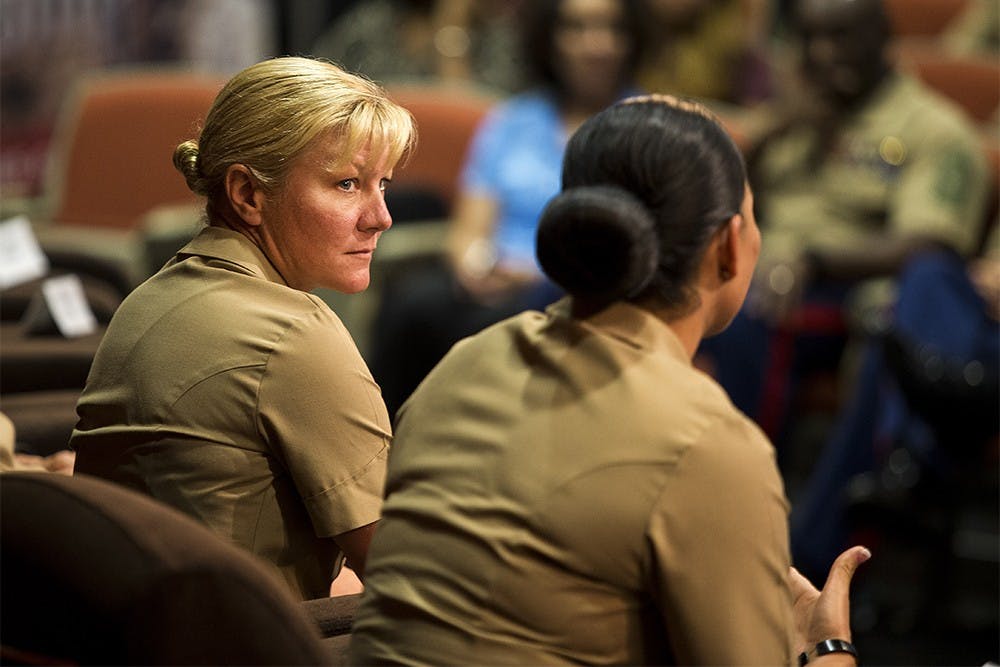“The answer is yes ... it’s just yes ... women in the Marine Corps have to work harder in leadership positions,” Lt. Col Tiffany Harris said.
Five other female Marine Corps Officers participating in the panel nodded in agreement.
The Thursday evening event, "Send in the Marines, all of the Marines," held on ASU's Downtown campus, was part of the University's Marine Week. Harris' personal leadership experiences and challenges were discussed.
“(The panel) shows that females can be in leadership positions,” recruiter Cpl. Mary Rossi said.
The discussion was moderated by ASU military advocate Joanna Sweatt. Preparation was a recurring theme with most challenges faced by the panelists, she said.
It focused on leadership qualities female Marines have and how they overcome gender bias and other challenges in the military.
“There is still a reality of having to work harder in the military as a woman,” Harris said.
Capt. Allison Weeks, one of the speakers on the panel, used childbirth as an example of one challenge unique to female military members.
“How are you going to be a marine 24/7 when you have to be a mom?" she asked.
The panel discussed bias against female Marines, including physical fitness and women in combat roles. Each panelist said the physical standards were not a problem for them.
“It’s not about me or the individual, it’s about the institution … give us a challenge and we’ll take it,” Brig. Gen. Helen Pratt said.
Since the Revolutionary War, women have been serving on the battlefield in capacities including nurses, water bearers, cooks and even spies.
“I joined because I was going to do something bigger than myself,” activated reservist and panel member Capt. Evita Mosqueda-Chapman said.
It wasn’t until 1917, in the last years of WWI, that women were allowed to officially join the military.
“When I joined in 1973, the highest a woman could go was colonel,” Kathryn Baarson, a veteran and audience member said.
Capt. Kristen Griest and First Lt. Shaye Haver were the first women to graduate from the Army Ranger School, along with 94 other students, in August.
More than 165,000 women are enlisted and active in the armed services with over 35,000 additional women serving as officers. Women make up about 15 percent of the military.
Maj. Amy Punzel, who also spoke at the panel, said that the Marines are a reflection of society, meaning that biases will decrease as people are educated and time passes.
“Every challenge I’ve had has also been an opportunity,” Punzel said.
Related Links:
U.S. Marine Corps: Take the best, leave the rest
Marine brings focus, maturity to football field
Reach the reporter at Preston.Scott-Hall@asu.edu or follow @sgt_preston on Twitter.
Like The State Press on Facebook and follow




